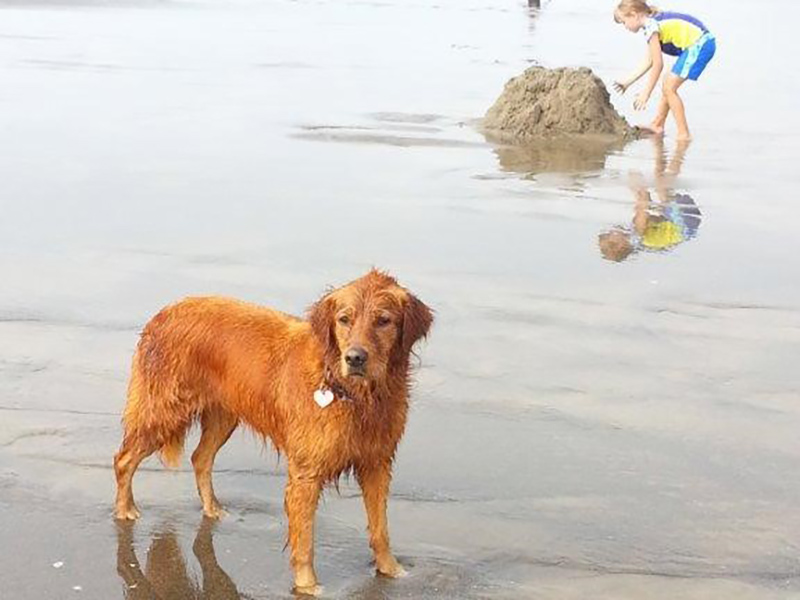
Beach season is finally upon us. If you frequent the state’s beaches you may catch a glimpse of one of our scientists taking water samples for testing. We’re looking for, and hopefully not finding, fecal bacteria. We’re hoping you can help us not find it.
Don’t let poop ruin your (or our) day at the beach.
Not only is swimming with fecal bacteria gross, it can cause vomiting, diarrhea, skin rashes, and other illnesses. Children, the elderly, and people with compromised immune systems are especially at risk.
When we find fecal bacteria in the water, we advise the public to avoid contact. This includes swimming, wading, beachcombing, kayaking, and paddle boarding.
How can I help my beach?
The short answer is, keep poop off the beach. Several factors can lead to unsafe levels of fecal bacteria on marine beaches including pet waste, leaky diapers, and wildlife. Here’s what you can do to help:
- Use bathrooms and swim diapers: Take frequent trips with your kids to the park’s bathrooms and put younger kids in swim diapers.
- Scoop the poop: Pick up your dog’s poop, bag it, and throw it in the trash.
- Don’t feed the birds: Feeding the birds and other wildlife can be fun, but it encourages them to stick around, ultimately bringing more poop to the beach. Pick up your trash and don’t feed the wildlife, no matter how cute they are!
- Don’t swim sick: Avoid swimming if you’re not feeling well, especially if you have diarrhea.
Interested in learning more? Visit our Website or Contact BEACH
Stay up to date on beach closures
You can check the status of your favorite beach by visiting our Coastal Atlas. You can also join our listserv to receive our latest Fecal Matters updates via e-mail.

